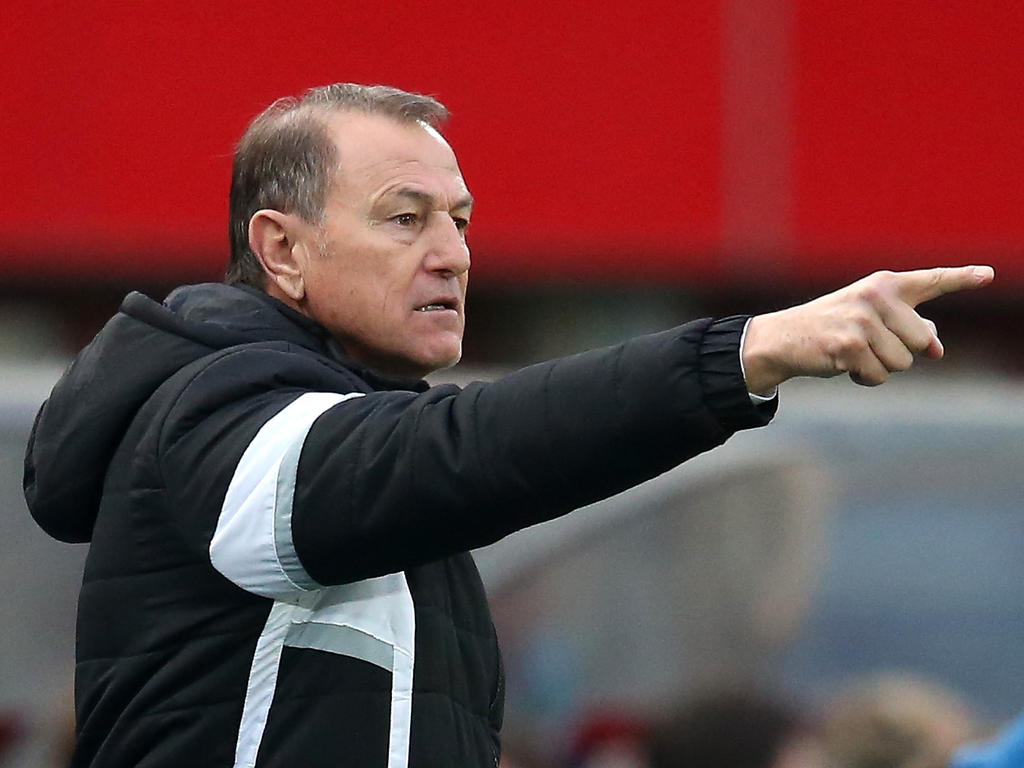Gianni de Biasi, Albania's favourite Italian

Leicester City boss Claudio Ranieri is not the only Italian coach to have brought unprecedented success to an unfancied football team: Gianni de Biasi has become a national hero in Albania.
The canny 59-year-old steered the Balkan country to Euro 2016, their first major tournament, a feat that prompted Albania's president to offer citizenship to the Italian. The country's prime minister gushed: "Dearest Gianni, words cannot express my gratitude to you".
The qualification sparked celebrations in Tirana and Pristina, capital of neighbouring Kosovo, whose population is mainly ethnic-Albanian.
Such euphoric scenes were unimaginable at the start of the campaign and especially when de Biasi took over in 2011.
Albania had finished bottom of their group in their bid to reach the Euro 2012.
Despite some encouraging results in the World Cup 2014 qualifiers, including an away win against Norway, they still finished fifth of six teams.
Pitted against Portugal, Denmark and old foes Serbia for the Euro 2016 campaign, almost no-one gave them any chance.
"When I said Albania could do it, they laughed at me," said de Biasi, who has admitted knowing little about the country when he took the job.
But thanks to Italian-style defensive discipline instilled by a coach who had spells in charge of Torino and Udinese, the "Kuq e Zinjte" (Red and Blacks) prevailed.
A shock 1-0 win in Lisbon in the group opener set the tone, Denmark could not beat them home or away, while just five goals were conceded during the eight-game campaign.
Key to de Biasi's success was his strategy of dipping into the talent pool within the large Albanian diaspora spread around Europe.
Many of those eligible for Albania play for Switzerland, like Xherdan Shaqiri, Valon Behrami and Granit Xhaka, or Germany, like Shkodran Mustafi.
Aided by team captain the Kosovo-born ex-Lazio defender Lorik Cana, an Italian-speaker who helps the coach translate team tactics in the dressing-room, the pair persuaded players, like Xhaka's brother, Taulant, and others like Mergim Mavraj, who had previously refused to join the national team, to get onboard.
Describing himself as "gifted at motivating the troops", and "a good organiser", de Biasi's fatherly concern for his team was evident during the tense qualifier with Serbia in Belgrade in October 2014.
"I was fully aware that my players were tense. Some told me they had lost relatives in the Serbia-Kosovo war. I know it was difficult for them to stand in that field," he told the BalkanInsight.com website.
"I'm close to the guys," he said.
The match was eventually abandoned after Serbian fans invaded the pitch and a drone with symbols of "Greater Albania" hovered over the pitch.
Although rank outsiders at Euro 2016, de Biasi's fiercely determined team -- called "a symbol of national pride" by Cana -- will be difficult to beat.
"What is it that I like about them most? They're so proud and passionate, though that can make my job difficult sometimes," de Biasi told FIFA.com last year.
"Every one of my internationals is capable of letting his inspiration and creativity do the talking.
"My role is to find a tactical system that brings the best out of them. I'm always looking for the right balance between imagination and collective discipline, and my players can now pick each other out with their eyes closed. Nothing gives me more pleasure than that."
"Our strength is our team spirit and our spirit of sacrifice," de Biasi told AFP recently.







